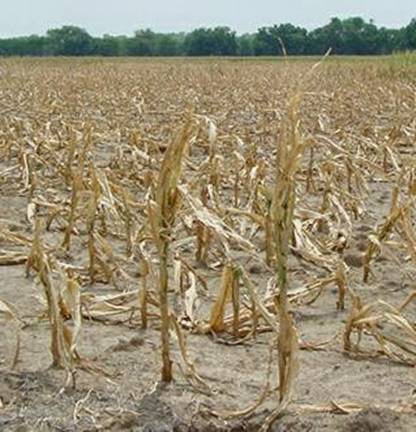
|
|
| Home | Seasons & Varieties | Tillage | Nutrient Mgmnt | Irrigation Mgmnt | Weed Mgmnt | Crop Protection | Cost of Cultivation | Photobank | |
Major Areas :: Dryland Agriculture: Problems of Crop Production |
|
PROBLEMS OF CROP PRODUCTION IN DRYLAND
Dry farming crops are characterized by very low and highly variable and uncertain yields. Crop failures are quite common. These are mainly due to the following causes. Inadequate and uneven distribution of rainfall In general, the rainfall is low and highly variable which results in uncertain crop yields. Besides its uncertainty, the distribution of rainfall during the crop period is uneven, receiving high amount of rain, when it is not needed and lack of it when crop needs it. Late onset and early cessation of rains Due to late onset of monsoon, the sowing of crop are delayed resulting in poor yields. Sometimes the rain may cease very early in the season exposing the crop to drought during flowering and maturity stages which reduces the crop yields considerably Prolonged Dry spells during the crop period Long breaks in the rainy season is an important feature of Indian monsoon. These intervening dry spells when prolonged during crop period reduces crop growth and yield and when unduly prolonged crops fail. Low moisture retention capacity The crops raised on red soils, and coarse textured soil suffer due to lack of moisture whenever prolonged dry spells occur due to their low moisture holding capacity. Loss of rain occurs as runoff due to undulating and sloppy soils. Low Fertility of Soils Drylands are not only thirsty, but also hungry too. Soil fertility has to be increased, but there is limited scope for extensive use of chemical fertilizers due to lack of adequate soil moisture. Photo Source: |
|
| Home | Seasons & Varieties | Tillage | Nutrient Management | Irrigation Management | Weed Management | Crop Protection | Cost of Cultivation | Disclaimer
© All Rights Reserved. TNAU-2016. |
|
